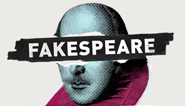Find out more about The Open University's Creative Writing courses.
Join writers all over the world as they write 50k words in a month as part of National Novel Writing Month. Here are our top tips and tricks to get a head start.
1. Just do it
Start by recording any ideas or thoughts you might have, whether it's pen to paper, or on your phone as a quick audio note; the important thing is that you write it all down so you can refer to it later.
-
Beating procrastination with the Pomodoro Technique
Watch now to access more details of Beating procrastination with the Pomodoro TechniqueShort bursts of action can help motivate you while you study. This short animation tells you more about the Pomodoro Technique.

Video
Level: 1 Introductory
-
Finding pockets of time to study
Watch now to access more details of Finding pockets of time to studyCould you study while you wait, travel or do chores? This animation explains how to make the most of your pockets of time throughout the day.

Video
Level: 1 Introductory
2. Put it in your diary
To ensure you find time for your writing, block time out for it. Treat your writing like you were making plans with a friend, and give it the same respect. If something else comes up, do not reschedule this time it's this lack of prioritising that feeds the procrastination.
Want some inspiration on managing your creativity? Then this free course - 'Making creativity and innovation happen' will unleash your inner literary warrior.
-
Making creativity and innovation happen
Learn more to access more details of Making creativity and innovation happenUnlock your creative potential with this free course on creativity and innovation. Explore how individual creativity develops, how organisations can foster innovation, and discover strategies to tackle challenges and do things better and differently.

Free course
10 hours
Level: 2 Intermediate
3. Write imperfectly
One common hurdle for many is the fear of 'doing things badly', but it's letting go of the idea of perfection that'll allow your creativity to flow freely.
Perfection is unattainable; it's practising that fosters quality, so adopt the idea of just experimenting for fun to alleviate the self-imposed pressure. Read on as novelist and lecturer Sally O'Reilly gives us her ten top tips for writing a novel.
-
Ten top tips for writing a novel
Read now to access more details of Ten top tips for writing a novelGot a novel bursting to get out? These tips from novelist and lecturer Sally O'Reilly may surprise you...

Article
Level: 1 Introductory
4. Write what you know
The best novels are written with authenticity, so whether you're writing about crime, sex or science fiction, writing about what you're experienced in is likely to keep you on track. Ask yourself - what are you passionate about? What do you tend to read yourself?
If you know what excites you, but don't know how to write about it, then this free course 'Writing what you know' will enhance your ability to write about your memories and feelings about a place or character.
-
Writing what you know
Learn more to access more details of Writing what you knowDo you want to improve your descriptive writing? This free course, Writing what you know, will help you to develop your perception of the world about you and enable you to see the familiar things in everyday life in a new light. You will also learn how authors use their own personal histories to form the basis of their work.

Free course
8 hours
Level: 1 Introductory
5. Read what you want to write about
To keep you in the zone, reading the works of authors you admire could be that extra dose of daily inspiration to keep up that motivation.
Whether you're into writing thrillers, plays or romances, immersing yourself with your chosen fiction will focus your mind, especially if you read with a critical mind.
For more guidance on becoming a writer through reading, enrol on our free course - Creative writing and critical reading on OpenLearn. And if your story ideas involve characters and an enticing plot, then Start writing fiction: characters and stories could be the perfect free course for you.
-
Creative writing and critical reading
Learn more to access more details of Creative writing and critical readingThis free course, Creative writing and critical reading, explores the importance of reading as part of a creative writer’s development at the postgraduate level. You will gain inspiration and ideas from examining other writers’ methods, as well as enhancing your critical reading skills. Examples will cover the genres of fiction, creative ...

Free course
8 hours
Level: 3 Advanced
-
Start writing fiction: characters and stories
Learn more to access more details of Start writing fiction: characters and storiesStart writing fiction is a free course that helps you to get started with your own fiction writing, focusing on the central skill of creating characters.

Free course
24 hours
Level: 1 Introductory
You’ve finished your novel now what?
Firstly, well done! If you want to take it further and see your creation on the bookshelves then your best bet is to get a literary agent to represent you. Here are Five Top Tips on how to hook an agent.
To find out more about this annual event, head over to NaNoWriMo for further information and writer's resources.
-
So you've written your novel, what now?
Read now to access more details of So you've written your novel, what now?Literary agent Joanna Swainson shares her top five tips for hooking an agent.

Article
Level: 1 Introductory
If you're in need of some inspiration...
-
Why I'd say yes, yes, yes to the Bad Sex award
Read now to access more details of Why I'd say yes, yes, yes to the Bad Sex awardIs there a magic ingredient to writing good sex scenes? This article explores...

-
An introduction to European crime fiction since 1945
Read now to access more details of An introduction to European crime fiction since 1945The popularity of crime fiction is on the rise. Bill Alder looks back and charts the history of this genre in post-1945 Europe.

-
Fakespeare: Rewriting the bard
Take part now to access more details of Fakespeare: Rewriting the bardRewrite Shakespeare’s best bits for the 21st Century and reveal your inner wordsmith.

-
Poetry prescription
Take part now to access more details of Poetry prescriptionFeeling loving, adventurous or scared? Poetry Prescription will find you the perfect poem to reflect your mood.

-
Quiz: Which Brontë sister wrote it?
Take part now to access more details of Quiz: Which Brontë sister wrote it?Charlotte, Emily and Anne Brontë had very different writing styles but can you tell their writing apart from the other?

-
Psychological drama: Writing fictional crime drama for a forensic psychology course
Read now to access more details of Psychological drama: Writing fictional crime drama for a forensic psychology courseFor Graham Pike, writing psychology courses is part of the job. But what happened when he found himself having to create a crime drama?

-
Try your hand at travel writing
Read now to access more details of Try your hand at travel writingTravel is something we can all do. We don’t have to travel great distances. A journey can be as close as the distance from our home to the park at the end of the road. Travel writing is one of the most compelling forms of writing because a good travel book can transport you immediately to different places, people, and cultures, all from the ...

-
Start writing fiction
Learn more to access more details of Start writing fictionHave you always wanted to write, but never quite had the courage to start? This free course, Start writing fiction, will give you an insight into how authors create their characters and settings. You will also be able to look at the different genres for fiction.

-
What's creative about creative writing?
Listen now to access more details of What's creative about creative writing?Can creativity be taught? How far can you be creative when translating other people's work? Listen to translators, authors and creative writing teachers as they explore these and other questions of creativity.


Rate and Review
Rate this article
Review this article
Log into OpenLearn to leave reviews and join in the conversation.
Article reviews